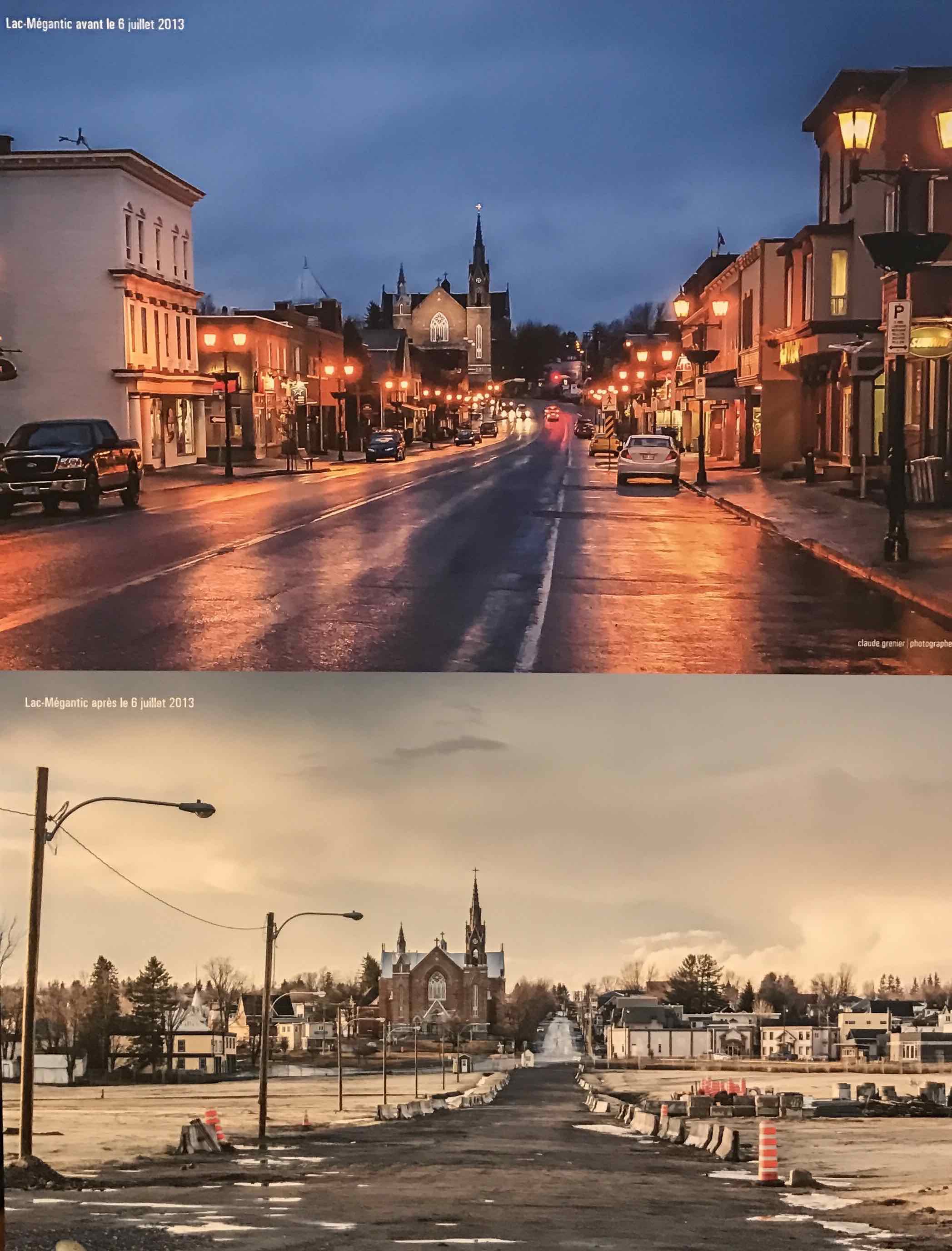Damning new testimony from an engineer of the locomotive involved in the deadly 2013 oil train disaster in Lac-Mégantic, Canada, reveals several ways corporate cost-cutting directly led to the accident, which claimed 47 lives.
We already knew for certain that a fire on the locomotive, which had been left parked and running for the night, per standard practice, was the direct cause of the disaster. That blaze resulted in the local fire department, directed by a rail company employee, to turn off the power to the locomotive. However, that action also shut off power to the air brakes, which eventually failed and caused the train to roll down the tracks into downtown Lac-Mégantic, where it exploded and leveled the area.
However, in newly released testimony reported by CBCNews, we learn about a troubling exchange between train engineer François Daigle, who had driven the oil train two days before its fiery derailment, and his supervisor:
Daigle said on that trip he noticed the locomotive kept losing speed and produced black smoke.
Daigle told the court he reported the problems to his supervisor, Jean Demaître, and sent a fax to the repair shop in Maine at the end of his shift.
Daigle said he asked Demaître to change the lead locomotive because of the repair issues.
“What was Demaître’s answer?” Crown prosecutor Marie-Éve Phaneuf asked.
“You’re complaining again?” Daigle said Demaître told him, continuing: “This is what we have, and at any rate, you are going to be receiving your pension after me.”
Daigle said he understood that to mean no changes would be made.
If that locomotive had been replaced, the Lac-Mégantic disaster most likely would not have happened.
A Train Much, Much Too Heavy
A second factor in the accident was related to its braking system. Once the fire department shut off the locomotive’s brakes, the train was only held in place by manual handbrakes, which proved insufficient for the train’s weight.
In Daigle’s testimony, which is part of the criminal trial of three of his Montreal, Maine and Atlantic Railway (MMA) colleagues, he revealed that the train was almost 50 percent heavier than regulations allowed. The train’s maximum allowed weight was 6,300 tonnes. The actual weight was 9,100 tonnes. Would the handbrakes have been sufficient to hold the train in place if it wasn’t so much heavier than permitted?
In his testimony Daigle also stated that management would not allow him to refuse to operate that train even when he knew it was overweight.
On top of all this, we already knew that it was company policy for employees to save time by not engaging a train’s third “automatic” braking system. Even with everything else going wrong, if the automatic braking system had been engaged, this disaster would likely have been averted and 47 lives spared.
It’s Not Them We Want
Less than a week after the 2013 disaster, Martin Lukacs, columnist for The Guardian, wrote a prophetic statement: “the explosion in Lac-Mégantic is not merely a tragedy. It is a corporate crime scene.” He couldn’t have been more right.
At DeSmog we have previously detailed the many other cost-cutting steps that led to this oil train disaster.
However, there was one other person who certainly knew who was to blame long before Daigle’s testimony was released. Thomas Harding is the engineer currently on trial with two fellow employees, none of them executives. In 2014 I wrote a piece about Lac-Mégantic for DeSmog, titled, “Should CEOs Get Jail Time For Oil-By-Rail Accidents Like Lac Megantic?” In that story, I included the following description of the crowd of people who watched as Harding and the others were taken into court after their arrests:
When Harding and two other crew members were frog marched into court after their arrest, Ghislain Champagne, the father of a woman who died in the Lac-Mégantic accident, yelled out, “It’s not them we want.”
But perhaps the management at MMA would be inclined to reply: “Are you complaining again?”
Images: Lac-Mégantic before and after the oil train explosion in 2013. Credit: Claude Grenier, Studio Numéra, Lac-Mégantic.
Subscribe to our newsletter
Stay up to date with DeSmog news and alerts








